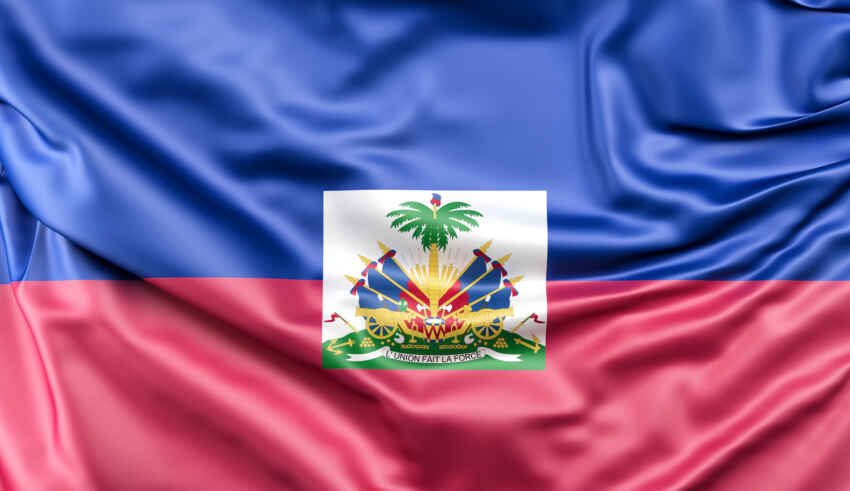
The very first free black republic, Haiti long suffered from internal and external turmoil caused by several international actors. Historically, Haiti had been subjected to geopolitical interests of the Western nations. Colonialism, political interference and economic exploitations are all the legacies bestowed upon to Haiti by the West, especially by numerous European nations and by the United States (U.S.). Continuously in the past, U.S. and West influenced Haitian politics both internally and externally. West’s prominent influence on Haiti’s politics ranging from pressuring the Haitian government to uphold their interests to endorsing certain political groupings and parties. This influence has occasionally increased tensions and threatened national sovereignty, feeding a cycle of political discontent and instability. Which is a variety of examples why Haiti slowly becoming an international issue to take responsibility on for the West.
Haiti had always been in a dysfunctional state resulted by those events. Haiti’s fall into this state further escalated by assassinations, gang violence, governmental failure and natural disasters. Recently, the unrest over the nation deepened by following the assassination of the Haitian President Jovenel Moïse on July 7th, 2021, by a group of highly trained foreign mercenaries consisting of several Columbians and Haitians.[1] Afterwards, Ariel Henry, who was the prime minister under the late President Jovenel Moïse’s rule, assumed the power in the country. Moreover, there were suspicion that now acting President of Haiti Ariel Henry had connection to the assassination.[2] This assassination, rumours and shift of political structure quickly created a power vacuum within Haiti. There were also further claims that the mercenaries assassinated President Moïse were the agents of the U.S. Drug Enforcement Agency (DEA) but were denied and quickly dismissed by U.S. as completely false. These types of accusations or even suspicions show the discontent and distrust of Haiti left by the West’s long-standing influence as a legacy, true or false.
Furthermore, in light of these events fragile peace within the county started to break down with numerous riots and the rise of gangs. Since Haiti never had a well organised and funded army, also with the weak police force for many years, state of the country kept getting worse. With weak foreign interventions and temporary international support by the U.S. and the United Nations (U.N.) Haiti continued to exist in a weaker state, both internally and externally. Never to regain a sovereign autonomy to protect its stability alone without a prominent or trustworthy international aid, Haiti remained in a cycle of vulnerability.
Lately, within the country, gangs started to rise which were driven back to slums by the U.N. peace keeping forces to exploit from the current situation of Haiti’s chaos. Gangs historically always been influential and powerful caused by a great deal of firearms smuggled from U.S and further ransom kidnappings that made gangs financially sustainable to continue their operations. Consequently, gangs’ hold much powerful military capacity compared to the country’s. Since the assassination of the late president, chaos and unrest grew which made gangs to grasp even more power. Outbreak of recent gang violence and uprising caused many Haitians to escape the country or relocate themselves internally, especially away from the capital. Gangs committed outgrowing number of lootings, sexual violence and mass murdering which boosted the chaos and instability. Moreover, gangs even orchestrated several prison breaks to continue their agendas and add to their growing numbers. Some sources even suggests that a gang-led coup is on the horizon for the country in the absence of a strong and stable government. In relation, international community continues to stay silent or incompetent to this situation growing within Haiti. It is with utmost care to be realized that this situation must be intervened or otherwise if West and international community continues to ignore this issue, chaos in Haiti might destabilize the region even further.
In the long run, establishing and maintaining a sustainable solution demands a concrete and continuous international effort. However, West and international community should be extremely cautious from further interfere with the sovereignty of Haiti to ensure a stable transition of power and not to repeat the mistakes of the past. In order to truly eradicate the roots of Haiti’s current crises such as gang violence, poverty, inequality, crime and corruption, it is essential that the wellbeing of the Haitian people must be the priority, fundamentally, no other ulterior motive should exist during this effort such as the political or even economic interests of international actors. It is extremely pivotal that the connected efforts and shared responsibilities of international actors must be realized to counter the possible impacts of this chaos might hold on to the globe spanning both political and economic at large. Overall, a persisting peace and stability must be the goal, not interest or profit like in the past.
In conclusion, given the current circumstances at hand on what is happening in Haiti, it is almost impossible and far too complicated to comprehend the current unrest and chaos within the country since it is a multilayered issue with historical and political backgrounds. Moreover, this whole situation needs to be understood in the larger framework of global power relations and impact of the Western imperialism on Haiti itself. The international community, especially the West, must consider how they have historically/politically influenced and impacted Haiti’s natural course in history and must give urgent priority on supporting a real democratic processes and sustainable development projects that might give the Haitian people much more power in the future as the country struggles with yet another political crisis. If this isn’t done soon, there’s a great chance that the crisis in Haiti could worsen and the cycle of instability might continue for years to come. Haiti stands as a great example as an international responsibility to take part on to fix and contribute for the better.
By The European Institute for International Law and International Relations
[1] https://www.bbc.com/news/world-latin-america-57762246
[2] https://edition.cnn.com/2022/02/08/americas/haiti-assassination-investigation-prime-minister-intl-cmd-latam/index.html















